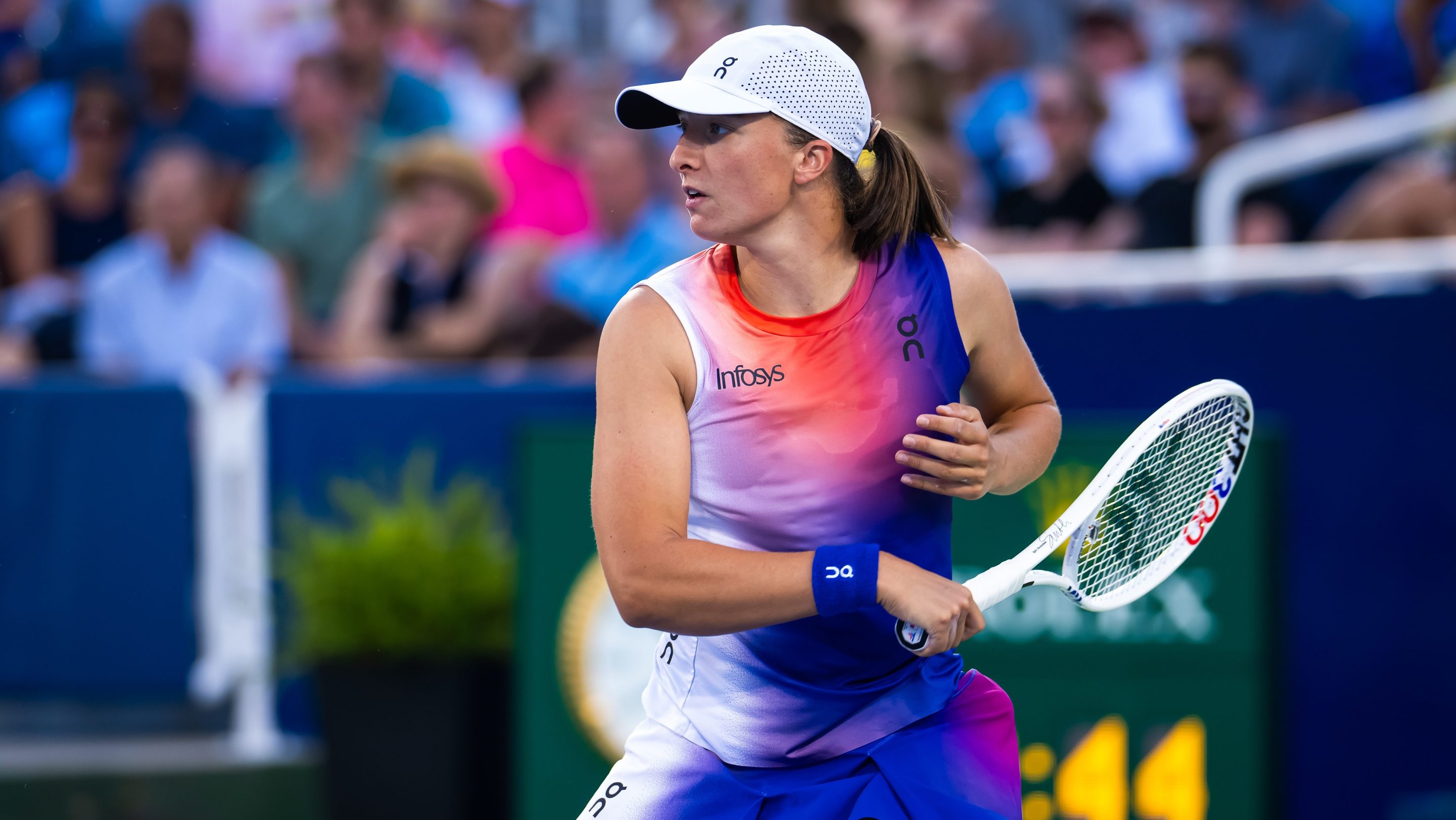For the second time in 2024, one of the best tennis players in the world has violated anti-doping rules. The International Tennis Integrity Agency announced Thursday that Iga Swiatek, currently the world No. 2, tested positive for the banned substance trimetazidine, a heart medication used in Europe and Asia to treat angina. It was detected in an out-of-competition test Swiatek provided just ahead of the Cincinnati Open in August, the ITIA said. Swiatek formally admitted to the anti-doping rules violation and accepted a one-month ban from the sport; her three weeks of provisional suspension earlier in the year count toward that ban, and she is currently serving the remaining eight days during a meaningless stretch of the tennis calendar. She was also stripped of $158,944 in prize money and 390 ranking points for her semifinal run in Cincinnati.
Swiatek previously had a provisional suspension as she sought to explain the source of the trimetazidine to the ITIA. While doing so, she missed tournaments in Seoul, Beijing, and Wuhan in September and October. Swiatek was able to have her suite of at least 14 supplements analyzed to identify a possible source of contamination. She concluded that the culprit was her melatonin, which Swiatek has long used, she said, because with "all my traveling, jet lag and work-related stress mean that sometimes without it, I couldn’t fall asleep." She provided both an opened and unopened containers of the melatonin to the ITIA, which had them analyzed and found the contamination consistent with the trace amounts of trimetazidine detected in Swiatek's urine sample. Her provisional suspension was lifted and she was able to continue competing at the WTA's year-end finals, per the ITIA decision.
The ITIA ruled that Swiatek's actions put her at the low end of "no significant fault or negligence," earning a one-month suspension. She was not found at "no fault or negligence," which might have allowed her to move on without any suspension at all, as was the case earlier this season with the No. 1 in men's tennis, Jannik Sinner. (That finding is currently being appealed by the World Anti-Doping Agency.)
"Once the source of the TMZ had been established, it became clear that this was a highly unusual instance of a contaminated product, which in Poland is a regulated medicine," ITIA head Karen Moorhouse said. "However, the product does not have the same designation globally, and the fact that a product is a regulated medication in one country cannot of itself be sufficient to avoid any level of fault. Taking into account the nature of the medication, and all the circumstances, it does place that fault at the lowest end of the scale."
Swiatek explained her side of the story in a video:
A couple of observations here: When it comes to dealing with anti-doping violations, it clearly helps to have the resources of a world No. 1 with eight-figure tournament winnings. In this instance, Swiatek was able to commission private lab analysis of her supplements; that was a critical part of the appeal that got her suspension lifted. Similarly, Sinner was able to construct a sophisticated legal defense so quickly that his two provisional suspensions were lifted almost immediately, not even interrupting his playing schedule. Another point of interest: Swiatek disclosed a list of 14 supplements and medications at the time of her doping test and forgot to list the melatonin at first, claiming that it was not on the list of substances she copies onto her doping forms and she was tired after having slept just a few hours. The sheer volume of substances is in line with what I have long expected: A top player who can afford a sophisticated staff is likely taking a large suite of supplements, tiptoeing up to the line of the banned substance list, to squeeze out every competitive edge possible.
Even the World Anti-Doping Agency is unsure if the anti-doping authorities are operating with a sensible protocol. In a recent interview with L'Equipe about these high-profile tennis cases, WADA director Olivier Niggli observed that labs had gotten more effective in identifying "infinitesimal" amounts of doping substances. "The quantities found are so small that it is possible to become contaminated by doing even trivial things," he said. While raising the thresholds would allow them to ignore these cases, Niggli worried it would also open up a lane for "micro-doping." He said that WADA would be opening a working group to think through this issue.






